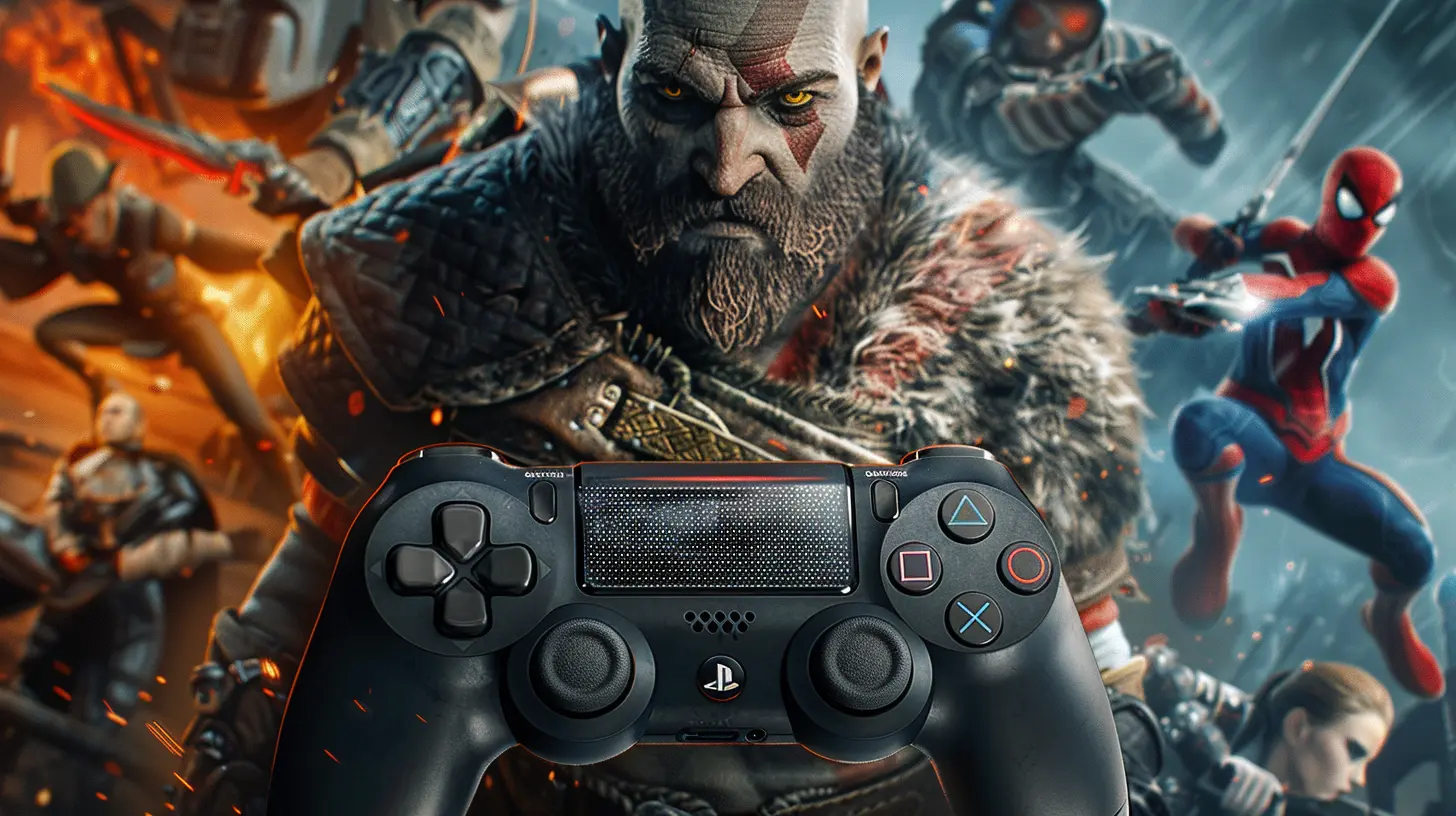Exploring Why Some Popular Games Still Don’t Support Cross-Platform Play
8 March 2025
Let’s be real for a second—gaming’s never been more connected than it is today. With the rise of online multiplayer, players from all over the globe can team up or duke it out in real time. But there’s an elephant in the room: cross-platform play. Sure, some games have embraced the idea of bridging the gap between consoles, PCs, and even mobile devices. Yet, there’s still a frustrating number of insanely popular titles that refuse to jump on the bandwagon. Why is that? What’s holding them back? And, more importantly, how does that affect us, the players?
Strap in, grab your favorite snack, and let’s break it all down.
What Even Is Cross-Platform Play?
Before we dive into the reasons behind the lack of cross-platform play in some games, let’s make sure we’re on the same page.Cross-platform play (or crossplay, for short) is when players using different gaming platforms—like PlayStation, Xbox, PC, or even mobile devices—can all play together in the same game. Imagine you’re on a PlayStation, your best friend’s rocking an Xbox, and your cousin’s stuck with their budget gaming PC. Crossplay lets all of you squad up or compete without a second thought. Sounds awesome, right?
Now, some games—think Fortnite, Call of Duty: Warzone, and Rocket League—have nailed crossplay. These games brought players together regardless of their console of choice. But others? Yeah, not so much.
The Games That Keep Us Divided
We’ve all been there: picking up a game that all your friends are raving about, only to realize you can’t play together because you’re on different platforms. It’s a frustrating experience. Games like FIFA, some versions of Grand Theft Auto Online, and even niche fan-favorites like Persona 5 Strikers are still divided across platform lines.And let’s not forget the infamous case of Minecraft Dungeons at launch. While the core game of Minecraft blazed a trail for cross-platform connectivity, its spinoff left players scratching their heads when it initially lacked crossplay.
So what gives? Why is it such a challenge?
The Technical Hurdles: It’s Not As Easy As It Sounds
Cross-platform gaming might sound like a no-brainer, but from a technical standpoint, it’s like trying to make spaghetti with only one pot, no strainer, and a microwave. It’s doable, but wow, is it messy.1. Different Hardware, Same Game
Every platform has different specifications, operating systems, and capabilities. For instance, PCs have powerful hardware configurations that can handle higher graphics settings, while consoles like the Nintendo Switch are more limited. It can be a nightmare to ensure that the game runs smoothly and fairly across all these devices.Imagine playing against a PC gamer who’s aiming at you with a mouse and keyboard while you’re fumbling with console analog sticks. It’s kind of like racing someone on a bike while you’re on a unicycle—it just doesn’t feel balanced.
2. Engine Limitations
Many games are built using engines that aren’t inherently designed for crossplay. In these cases, developers often have to rewrite major portions of the codebase to support cross-platform compatibility. And guess what? That takes time. Lots of it.
Platform Wars: Companies Don’t Always Play Nice
Let’s address the not-so-subtle rivalry between gaming giants like Sony, Microsoft, and Nintendo. It’s no secret that these companies are competing for your loyalty—and your wallet. Unfortunately, that competition can sometimes get in the way of crossplay.1. Sony’s Infamous Resistance
Once upon a time, Sony was the villain in the crossplay saga. Back in the Fortnite days, PlayStation players were locked into their ecosystem, even though Xbox and Nintendo Switch users were happily cross-playing. For Sony, it wasn’t just about money—it was also about control. They didn’t want their players buying in-game cosmetics or items on another platform. It’s like letting someone shop at your rival’s store but still expecting them to use your gift card. Awkward.2. Revenue Sharing Drama
When crossplay happens, companies have to sort out who gets paid and how. If a player makes a purchase on PC but spends most of their time on a PlayStation, who gets the cut? Sorting that out is more complicated than dividing a pizza among picky eaters.The Developer Dilemma: Time, Money, and Resources
Here’s the harsh reality: developing a game is expensive. Adding cross-platform play to that equation? Even pricier.1. Time Is Money
Developers often have limited time and resources. When they’re already working on tight schedules to meet release dates, implementing crossplay can feel like an unnecessary luxury. It’s not that they don’t want to do it; it’s just that other priorities—like bug fixes, DLC creation, and updates—often take precedence.2. Smaller Studios Feel It More
For indie developers or smaller studios, crossplay might be off the table entirely. The cost of servers, matchmaking infrastructure, and ensuring seamless gameplay across platforms is simply overwhelming. It’s like asking a mom-and-pop bakery to suddenly start delivering nationwide—great idea, but they need more ovens first.The Elephant in the Room: Cheating and Balancing Issues
Crossplay isn’t all sunshine and rainbows; it comes with its own set of problems. One of the biggest? Cheating.Cheaters tend to be more common on PC, where it’s easier to install mods or use exploits. Console players sometimes feel like they’re stepping into a lion’s den when playing against PC users. And honestly, can you blame them? Crossplay can amplify these issues, putting developers in a tough spot.
Balancing is another headache. In competitive games, ensuring fairness between different control schemes (mouse vs. controller) or performance levels (PC vs. older consoles) is a monumental effort. Without careful tuning, crossplay could harm the overall player experience, and no developer wants that.
Is Crossplay the Future?
Despite the challenges, cross-platform play is slowly becoming more common, and players are demanding it more than ever. Gamers want the freedom to play with friends, regardless of the hardware they own. And while there are still hurdles to overcome, the industry is clearly moving in the right direction.1. Success Stories Are Paving the Way
Games like Fortnite, Rocket League, and Apex Legends have shown that crossplay can work and that the benefits outweigh the risks. These success stories are inspiring other developers to take the leap.2. Pressure From Players
Let’s be honest: we, the gamers, hold a lot of power. When enough people speak out about the lack of crossplay in a game, developers and publishers tend to take notice. So keep voicing your opinions—it works!3. Tech Is Evolving
As technology improves and cloud gaming becomes more prominent, many of the technical limitations of crossplay might fade away. Services like Xbox Cloud Gaming and NVIDIA GeForce Now are already blurring the lines between platforms, inching us closer to a fully connected gaming world.Conclusion: The Waiting Game (Pun Intended)
At the end of the day, the lack of cross-platform play in some popular games boils down to a mix of technical, financial, and competitive reasons. It’s not that developers or publishers are out to ruin our fun (even though it feels that way sometimes!); it’s just that making crossplay a reality is a huge undertaking.Still, the dream is alive. The success of crossplay in certain games proves that the industry can rise to the challenge. While it might take a little longer for some holdouts to catch up, we’re moving closer to a future where gaming truly connects everyone, no matter what device they’re using.
Until then, all we can do is wait, hope, and maybe send the developers a few polite tweets. Because who doesn’t want to team up with their Xbox buddy while playing on a PlayStation?
all images in this post were generated using AI tools
Category:
Cross Platform GamesAuthor:

Greyson McVeigh
Discussion
rate this article
5 comments
Quade McNaughton
Why do some games resist cross-platform play? Any insights?
April 4, 2025 at 4:57 AM

Greyson McVeigh
Some games resist cross-platform play due to technical challenges, concerns over unfair advantages, business strategies, and maintaining a consistent player experience across different platforms.
Starla Lamb
Seems like a missed opportunity!
March 25, 2025 at 5:50 AM

Greyson McVeigh
Thanks for your comment! Indeed, cross-platform play offers great potential for inclusivity and community growth in gaming.
Blake Mahoney
This article raises important points about the challenges of cross-platform play. It’s frustrating to see popular games limit player interaction due to technical or business reasons. Bridging platforms fosters community and enhances experiences, so it’s disappointing when developers don’t prioritize this feature.
March 23, 2025 at 4:11 AM

Greyson McVeigh
Thank you for your insightful comment! I agree that cross-platform play enhances community and gameplay, and it's frustrating when technical or business constraints hinder this progress. Your perspective highlights the need for developers to prioritize player interaction.
Francesca McClendon
While cross-platform play enhances player experience and community engagement, many popular games resist its implementation due to concerns over balancing, competitive integrity, and technical challenges. This reluctance often reflects a prioritization of brand loyalty and profit over inclusivity, potentially stifling player collaboration.
March 16, 2025 at 3:42 PM

Greyson McVeigh
Your comment highlights key issues—balancing competitive integrity and the focus on brand loyalty often hinder cross-platform play, limiting player collaboration and inclusivity. Thank you for sharing your insights!
Tamara Wolf
Cross-platform play enhances community engagement but poses technical and business challenges. Developers must balance player demand against issues like matchmaking fairness and existing partnerships, impacting their decisions on support.
March 11, 2025 at 3:53 PM

Greyson McVeigh
You're right; while cross-platform play boosts community engagement, it does come with significant challenges that developers must navigate carefully.
MORE POSTS

The Importance of Playtesting in a Crowdfunded Game Campaign

Choosing the Perfect Crowdfunding Timeline for Your Game Project

The Role of Social Media in Crowdfunding Your Indie Game

The Future of Simulation Games: Virtual Worlds Becoming More Realistic

The Challenges of Writing Episodic Game Content